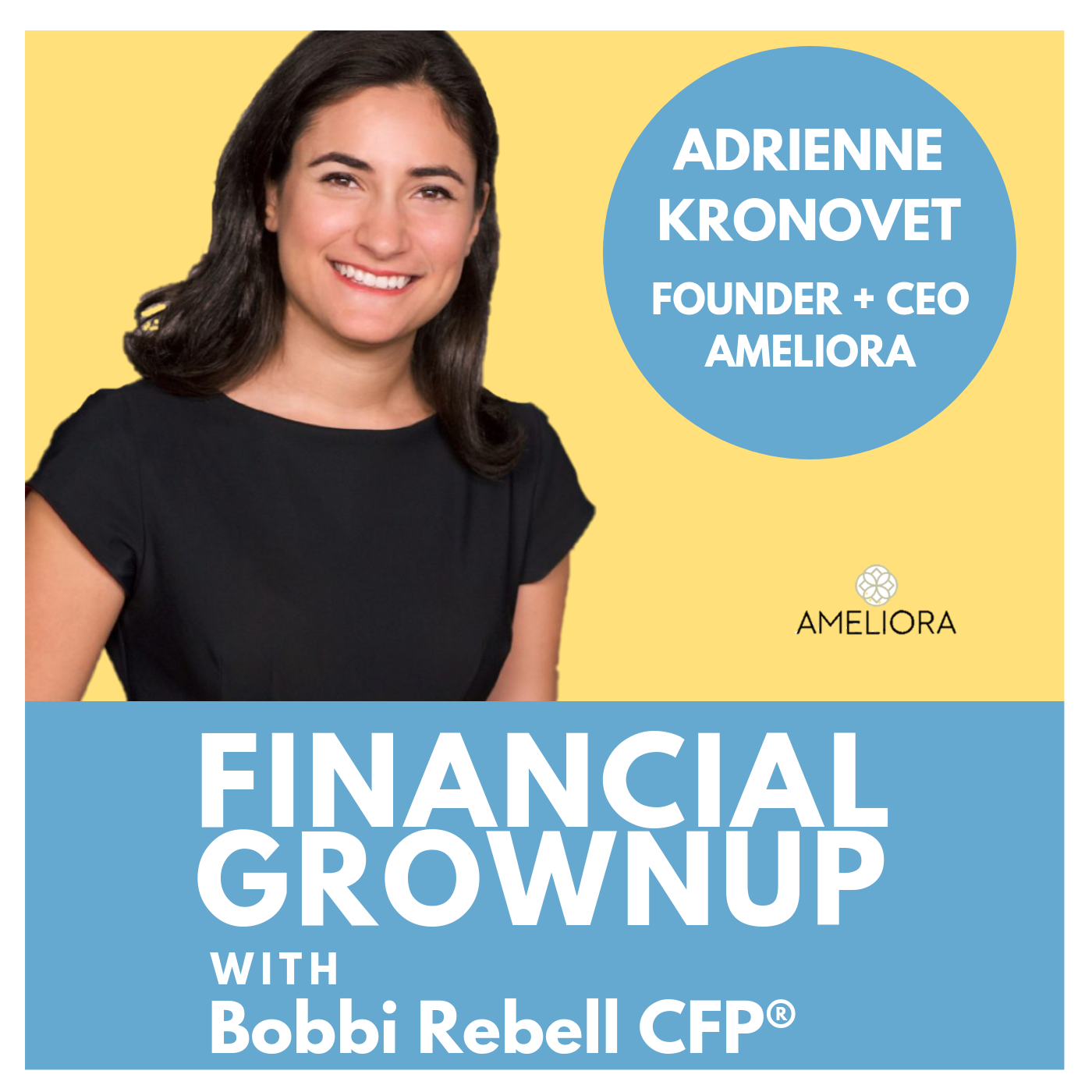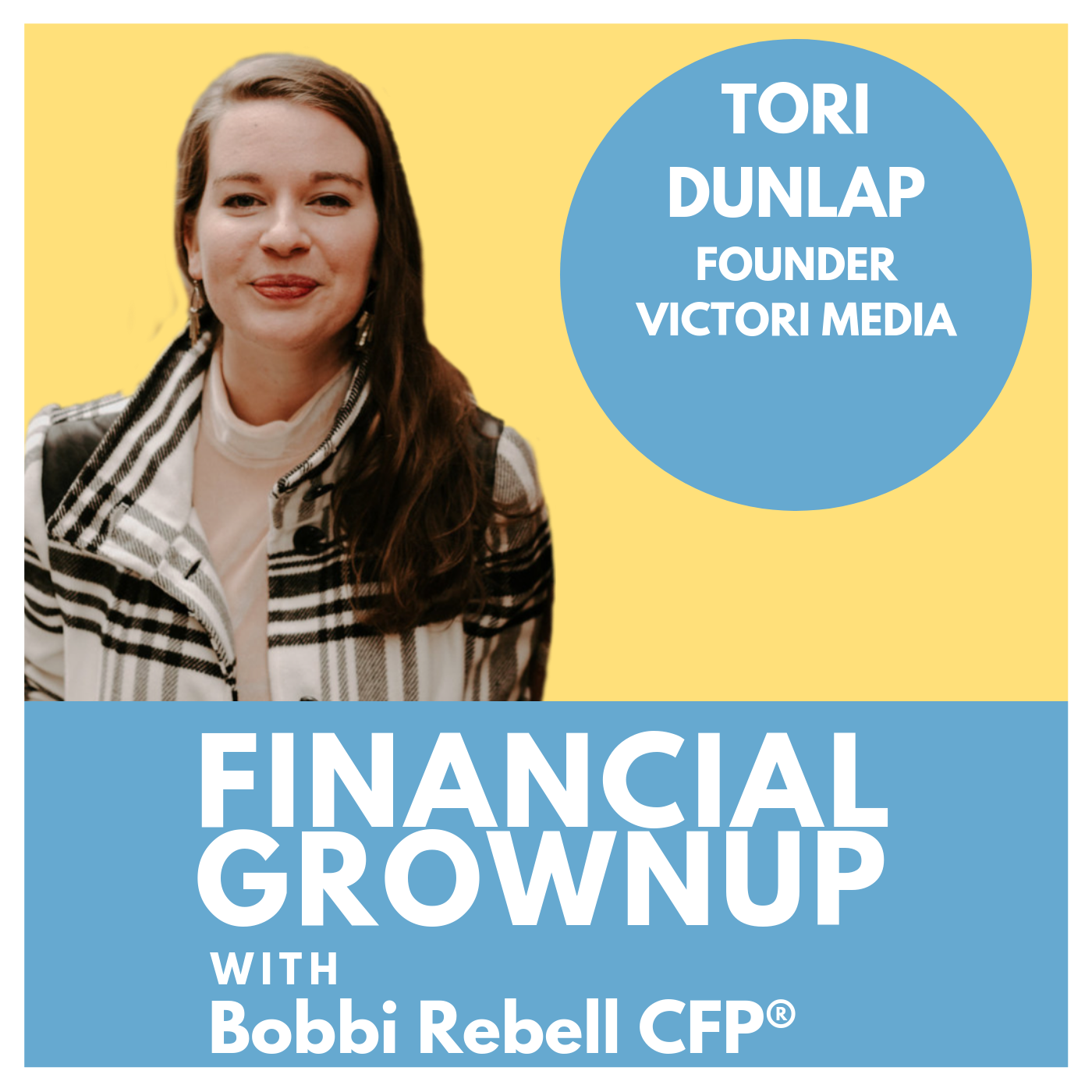Performance coach Jen Cohen is a master at ab crunches— crunching numbers. She shares the story of how she talked her way into a job at Olive Garden before she was even old enough to work- and then reveals her secrets to eating healthier on a tight budget.
Jennifer’s Money Story:
Thanks, Bobbi. When you asked that question, it makes you think and go back into your brain a little bit to think why someone is the way they are, subconsciously. I think it really goes back to when I was really small, four, five years old when my mom and dad did get divorced, and I guess money was quite tight. I do remember my mom, to make extra money, my mom is a psychiatric nurse, and she had a full-time job, but she had now two kids also, and it wasn't enough, so she would have these odd jobs.
Jen Cohen:
I don't remember all the details, but I do remember her working to sell stuff. She sold Mary Kay cosmetics on the side. She would also cut out pieces of the carpet in our apartment where she was selling them, and I think that vision or that imagery really stuck in my brain in a negative way. It told me right at that moment, "I don't want to be poor, or I always want to make my own money and feel financially stable and secure, not to rely on somebody else for my financial security."
Jen Cohen:
From that moment, I guess even as a small, small child, I went through life thinking of ways of having side hustles or working and doing things. When I was 12 years old, I remember bargaining and hustling with the manager of the Olive Garden down my street about working for him.
Bobbi Rebell:
Wait, you were 12 years old, and you were working at Olive Garden?
Jen Cohen:
I was. I was a greeter. They wouldn't allow me at 12 because you're too young to get ... I wasn't allowed in the actual restaurant because it was illegal, but I negotiated my way with this guy and just begged him and just hawked him enough where he gave me a job as a greeter. I was able to open up the front door for customers when they walk in. When they first get there, the first person you see was me, and I'm like, "Hello, welcome to Olive Garden." That was really my first real legit job when I was in nine, no, seventh, eighth grade, something really ... I was young, where I remember people in my neighborhood be like coming to the restaurant and be like, "What are you doing here?" It was very odd.
Bobbi Rebell:
But it sounds like you were actually really proud to be earning money, even at that young age. You weren't embarrassed about it. You were excited.
Jen Cohen:
Oh, God. No. I loved it. I always loved having my own money. I always loved having that option, never having to ask my mom or whoever. If I wanted something, I would have it, but here's a caveat. I would never spend my money, so all of this was for me to have savings. It wasn't for me to actually buy stuff. I've never been a very materialistic person. It's really about having in my head knowing that I had that backup, having that security blanket. I would literally save everything.
Jen Cohen:
Then through high school, through college, I always had multiple jobs just so I had it where very comfortable later on, but it was never about that. I've been very rich, and I've been poor, or in the middle, but it's never been that story that's driven me. It's really about that I think one experience when I was a little girl that just has always been subconsciously in my brain where I'm driven to make and create financial security just to have it.
Jennifer’s Money Lesson:
The takeaway is, A, number one, always spend below your means, not above, just so you have that ability, and find and figure out ways to save money. There's so many ways now. You can eat cheaply. You can figure out ways. You can work out for free. You can eat for less than $7 a day. There's a lot of ways to be crafty and resourceful if you want to be.
Jennifer’s Money Tip:
People can actually be much healthier on a very restricted budget. First of all, eating canned salmon. Canned salmon is automatically wild.
Bobbi Rebell:
I didn't know that.
Jen Cohen:
Yeah.
Bobbi Rebell:
And wild salmon is better. That's not just a myth to charge you more at the store.
Jen Cohen:
Absolutely not. Farmed salmon has a lot of toxins and maybe a lot of mercury. It could have a lot of different things in it. That's why people say limit your fish intake to maybe once a week, twice at max.
Bobbi Rebell:
Right, and that wild salmon is really expensive near me.
Jen Cohen:
It's expensive everywhere, but if you buy canned salmon, just make sure you look on the can. If it says wild Alaskan, that can of salmon would be maybe $2.50 to $3 at most, and that's higher quality than salmon that you would buy that would normally cost about $14 a pound anywhere else, maybe $17 a pound, depending on where you live. That is the perfect portion. That in itself is a meal.
Bobbi Rebell:
How do you usually eat it? Do you put it on a salad? What do you do with it usually?
Jen Cohen:
You could do anything. You could put it on a salad. You could actually ... When I'm starving and I need something to satiate me, I could just take the can of salmon, mash it a little bit of Vegenaise or mayonnaise whatever you'd like, or just put it in a bowl or whatever, eat out of the can as a snack. When I was on a budget I would eat that all the time, and I still eat that.
Jen Cohen:
The other thing is frozen vegetables. Frozen vegetables are a higher quality-sourced produce than what you find at the store because by the time it's at the store, it's been sitting on trucks, it's already half rotten. When you buy frozen vegetables, they flash-freeze them when it's at its peak, so the quality is better.
Bobbi Rebell:
So frozen vegetables, but not canned vegetables? What's the difference there?
Jen Cohen:
Listen. Canned corn, there's nothing wrong with canned corn. I mean, the reality is this: I don't like canned vegetables as much because I think when you do that in the cans, they have to add sodium. I try to stay away from that, but when it's the frozen vegetables, it's typically just the vegetable in itself flash-freeze in a bag so there's no added anything. It's just the vegetables. Canned vegetables typically have to have a preservative to keep it because it's not frozen, and also added salt. That's why I choose to have the frozen vegetables.
Bobbi Rebell:
I love that all.
Jen Cohen:
And frozen fruit, by the way, too.
Bobbi Rebell:
Yes, and I do that in smoothies a lot, actually. I did that even today in a smoothie.
Bobbi’s Financial grownup tips:
Financial grownup tip number one:
Don't be a food snob. Jen talked about eating frozen veggies and canned fish and how, quote, "fresh" isn't always better even if it's organic. Oh, my goodness. Could you imagine? Organic not being the absolute best? You need to pay attention. You can really get burned paying up for all that so-called fresh food because when you take away all those chemicals, which you should, we don't want the chemicals on our food, of course, but sometimes, the shelf life is just really short.
Recently, I splurged on these organic grapes at Whole Foods, and they went bad so fast. I had paid $8 for a bunch because I really wanted the grapes and I wanted to feel like I was eating healthy, and they barely lasted. That is also, by the way, a reason not to go shopping with your kids because I was with my son, and he also felt we should get the grapes, even though they were really expensive, and it's really hard to say no to a kid with they ask for food that's actually not junk food. Even if it's not the absolute healthiest fruit, it's not junk food, and that hard not to encourage, so try to leave your kids at home when you shop, although that's not always realistic.
Financial grownup tip number two:
The power of persuasion is very real. Good for Jen. Jen really shouldn't have been working at the Olive Garden at age 12 because it was not actually fully legal, but she got her way because she was creative and she found a way to get to yes with a reluctant manager and find a way to work there without technically working there and not technically breaking the law. That was a great lesson for all of us, Jen. Be persuasive and find a way around obstacles.
Episode Links:
Blinkist - The app I’m loving right now. Please use our link to support the show and get a free trial.
Jennifer’s website - jennifercohen.com
How to save money and cut calories on your morning coffee from Starbucks
Jen's book Badass Body Goals
Follow Jennifer!
Instagram - @TheRealJenCohen
Twitter - @TheRealJenCohen
Some of the links in this post are affiliate links. This means if you click on the link and purchase the item, I will receive an affiliate commission at no extra cost to you. All opinions remain my own.
Performance coach Jen Cohen is a master at ab crunches— crunching numbers. She shares the story of how she talked her way into a job at Olive Garden before she was even old enough to work- and then reveals her secrets to eating healthier on a tight budget. #EatHealthy #EatHealthyOnABudget #Author









